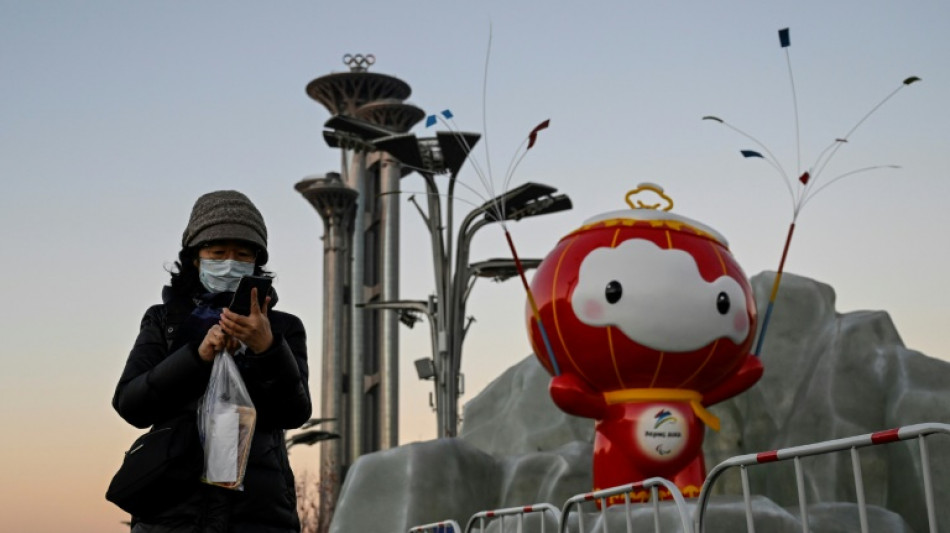
-
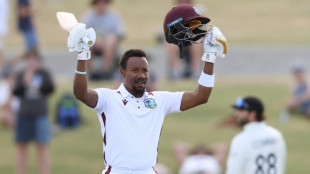 West Indies 420 all out to trail New Zealand by 155
West Indies 420 all out to trail New Zealand by 155
-
Arteta tells leaders Arsenal to 'learn' while winning

-
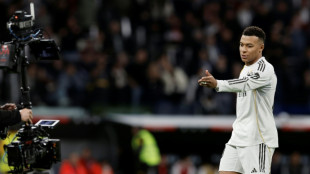 Honour to match idol Ronaldo's Real Madrid calendar year goal record: Mbappe
Honour to match idol Ronaldo's Real Madrid calendar year goal record: Mbappe
-
Dupont helps Toulouse bounce back in Top 14 after turbulent week

-
 Mbappe matches Ronaldo record as Real Madrid beat Sevilla
Mbappe matches Ronaldo record as Real Madrid beat Sevilla
-
Gyokeres ends drought to gift Arsenal top spot for Christmas

-
 Arsenal stay top despite Man City win, Liverpool beat nine-man Spurs
Arsenal stay top despite Man City win, Liverpool beat nine-man Spurs
-
US intercepts oil tanker off coast of Venezuela

-
 PSG cruise past fifth-tier Fontenay in French Cup
PSG cruise past fifth-tier Fontenay in French Cup
-
Isak injury leaves Slot counting cost of Liverpool win at Spurs

-
 Juve beat Roma to close in on Serie A leaders Inter
Juve beat Roma to close in on Serie A leaders Inter
-
US intercepts oil tanker off coast of Venezuela: US media

-
 Haaland sends Man City top, Liverpool beat nine-man Spurs
Haaland sends Man City top, Liverpool beat nine-man Spurs
-
Epstein victims, lawmakers criticize partial release and redactions
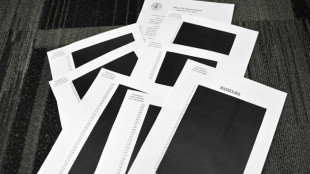
-
 Leverkusen beat Leipzig to move third in Bundesliga
Leverkusen beat Leipzig to move third in Bundesliga
-
Lakers guard Smart fined $35,000 for swearing at refs
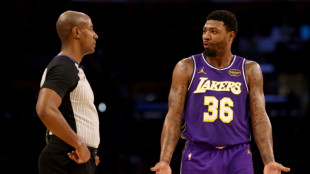
-
 Liverpool sink nine-man Spurs but Isak limps off after rare goal
Liverpool sink nine-man Spurs but Isak limps off after rare goal
-
Guardiola urges Man City to 'improve' after dispatching West Ham

-
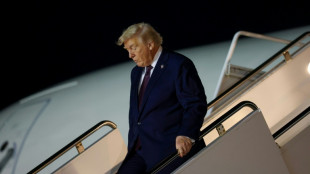 Syria monitor says US strikes killed at least five IS members
Syria monitor says US strikes killed at least five IS members
-
Australia stops in silence for Bondi Beach shooting victims
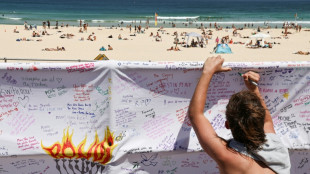
-
 Olympic champion Joseph helps Perpignan to first Top 14 win despite red card
Olympic champion Joseph helps Perpignan to first Top 14 win despite red card
-
Zelensky says US mooted direct Ukraine-Russia talks on ending war
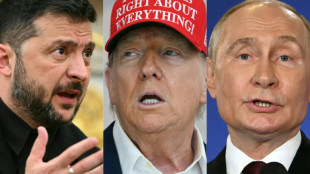
-
 Wheelchair user flies into space, a first
Wheelchair user flies into space, a first
-
Brazil's Lula, Argentina's Milei clash over Venezuela at Mercosur summit
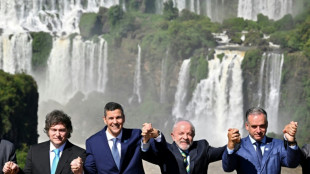
-
 Haaland sends Man City top, Chelsea fightback frustrates Newcastle
Haaland sends Man City top, Chelsea fightback frustrates Newcastle
-
Thailand on top at SEA Games clouded by border conflict
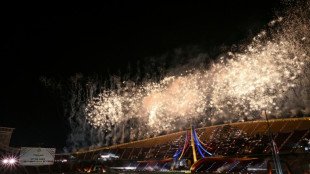
-
 Chelsea chaos not a distraction for Maresca
Chelsea chaos not a distraction for Maresca
-
Brazil's Lula asks EU to show 'courage' and sign Mercosur trade deal
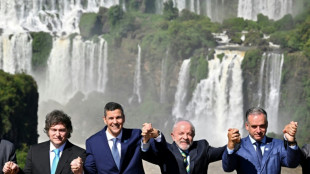
-
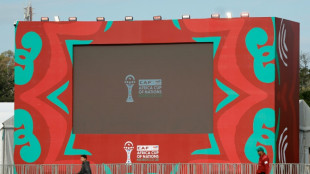 Africa Cup of Nations to be held every four years after 2028 edition
Africa Cup of Nations to be held every four years after 2028 edition
-
Zelensky says US mooted direct Ukraine-Russia talks on ending war in Miami
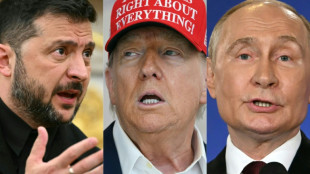
-
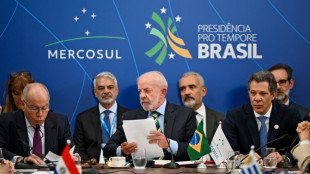 Armed conflict in Venezuela would be 'humanitarian catastrophe': Lula
Armed conflict in Venezuela would be 'humanitarian catastrophe': Lula
-
Chelsea fightback in Newcastle draw eases pressure on Maresca

-
 FIFA Best XI 'a joke' rages Flick over Raphinha snub
FIFA Best XI 'a joke' rages Flick over Raphinha snub
-
Swiss Von Allmen pips Odermatt to Val Gardena downhill
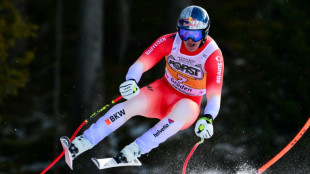
-
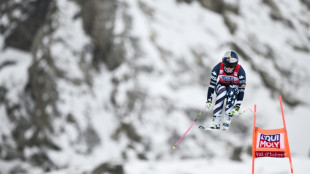 Vonn claims third podium of the season at Val d'Isere
Vonn claims third podium of the season at Val d'Isere
-
India drops Shubman Gill from T20 World Cup squad

-
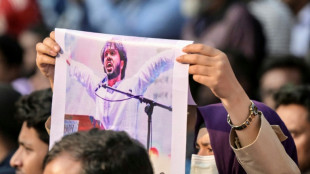 Tens of thousands attend funeral of killed Bangladesh student leader
Tens of thousands attend funeral of killed Bangladesh student leader
-
England 'flat' as Crawley admits Australia a better side
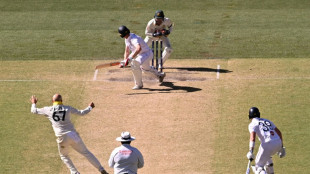
-
 Australia four wickets from Ashes glory as England cling on
Australia four wickets from Ashes glory as England cling on
-
Beetles block mining of Europe's biggest rare earths deposit

-
 French culture boss accused of mass drinks spiking to humiliate women
French culture boss accused of mass drinks spiking to humiliate women
-
Burning effigy, bamboo crafts at once-a-decade Hong Kong festival

-
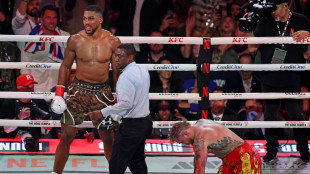 Joshua knocks out Paul to win Netflix boxing bout
Joshua knocks out Paul to win Netflix boxing bout
-
Dogged Hodge ton sees West Indies save follow-on against New Zealand
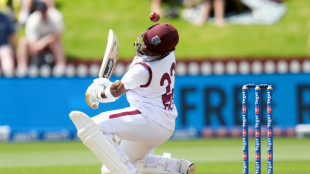
-
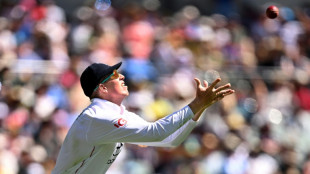 England dig in as they chase a record 435 to keep Ashes alive
England dig in as they chase a record 435 to keep Ashes alive
-
Wembanyama 26-point bench cameo takes Spurs to Hawks win

-
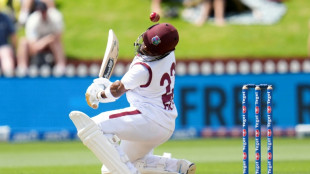 Hodge edges towards century as West Indies 310-4, trail by 265
Hodge edges towards century as West Indies 310-4, trail by 265
-
US Afghans in limbo after Washington soldier attack
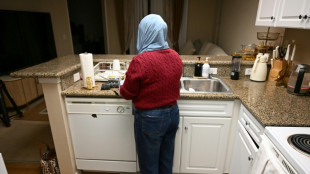
-
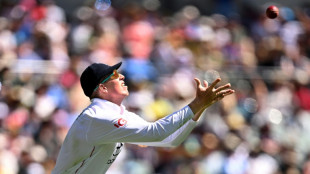 England lose Duckett in chase of record 435 to keep Ashes alive
England lose Duckett in chase of record 435 to keep Ashes alive
-
Australia all out for 349, set England 435 to win 3rd Ashes Test
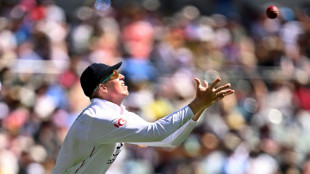

Athlete surveillance warnings cloud China's Winter Olympics
A growing number of Western nations and cybersecurity groups have issued digital surveillance warnings for next month's Winter Olympics in Beijing, with some advising foreign athletes to leave personal phones and laptops at home.
China hopes to pull off a successful, coronavirus-free Games that will burnish its international reputation.
But the run-up has been fraught with political controversies including diplomatic boycotts over Beijing's rights record and worries about the safety of tennis star Peng Shuai, who was not seen for weeks after accusing a former Communist Party leader of sexual assault.
Now concerns are focusing on whether the tens of thousands of foreign athletes, dignitaries and media workers will be safe from China's vast array of surveillance tools.
Everyone taking part in the Games will operate in a bubble that separates them from the rest of the population, to reduce the chances of the coronavirus spreading into China, which sticks to a strict zero-Covid policy.
Earlier this week, researchers at the University of Toronto's Citizen Lab said a virus-monitoring app all attendees must use was found to have a "simple but devastating" encryption flaw that could allow personal data including health information and voice messages to leak.
Citizen Lab said it notified Beijing organisers of the issues in early December, but received no reply.
"China has a history of undermining encryption technology to perform political censorship and surveillance," researcher Jeffrey Knockel wrote.
"As such, it is reasonable to ask whether the encryption in this app was intentionally sabotaged for surveillance purposes or whether the defect was born of developer negligence."
Canberra-based cybersecurity firm Internet 2.0 also warned in a recent report that official Games software -- including a VPN and an anti-virus product -- from two of the event's Chinese tech sponsors could potentially collect troves of user data without their knowledge.
- Burner phones -
The Beijing Winter Olympic Organising Committee told AFP Thursday that any security issues had been "fixed", and they had not been aware of Citizen Lab's earlier request.
"The security loopholes have already been fixed. If they existed in earlier versions, they have been fixed in the latest version," said Yu Hong, head of tech at the committee.
The International Olympic Committee has also dismissed the Citizen Lab claims, citing assessments from two unnamed cybersecurity organisations which "confirmed that there are no critical vulnerabilities".
But such assurances have done little to mollify some Western teams.
National Olympic associations in the United States, Canada, the United Kingdom and Australia have advised athletes to leave their personal devices at home and use temporary burner phones if possible while in China for the Games.
"We've reminded all Team Canada members that the Olympic Games present a unique opportunity for cybercrime," the Canadian Olympic Committee said in a statement, adding it warned athletes to be "extra diligent".
Dutch and Belgian media reported last week that their athletes had been given similar advice. Australia will provide its own Wi-Fi for athletes in designated areas, Bloomberg reported.
Some of these countries have joined a growing diplomatic boycott of the Games that has incensed China. Other European nations are unruffled. The Spanish and Italian Olympic committees told AFP they had given no specific advice to athletes on cybersecurity.
- 'Uncensored does not mean unmonitored' -
China maintains the world's most sophisticated digital tools to monitor and censor the internet for its citizens, keeping the online world behind a "Great Firewall" and blocking major Western platforms such as Twitter, Facebook and YouTube.
It has previously provided uncensored internet access to guests at international events on Chinese soil.
The IOC has said China will give athletes and accredited foreign journalists uncensored internet access through Wi-Fi networks and official SIM cards.
State-owned China Unicom will provide 5G data SIM cards to incoming foreign journalists, according to an article on the news site of the Ministry of Industry and Information Technology.
But analysts fear such Wi-Fi networks could still pose potential cybersecurity threats to users, such as surveillance and personal data theft.
It is common practice for foreign diplomats to leave behind personal phones when visiting China on work trips for the same reasons.
"It would be a good assumption that connecting to public Wi-Fi in the bubble is not safe -- that the Ministry of Public Security and the Ministry of State Security could have access to the data," said Adam Segal, a cybersecurity expert at the Council on Foreign Relations in New York.
Robert Potter, co-founder of Internet 2.0, agreed that caution was reasonable, saying that "the surveillance state does not have an exception clause for athletes".
"Uncensored does not mean unmonitored," he told AFP. "I don't know of anyone who has entered China who has not been subject to some level of electronic surveillance."
P.Mathewson--AMWN